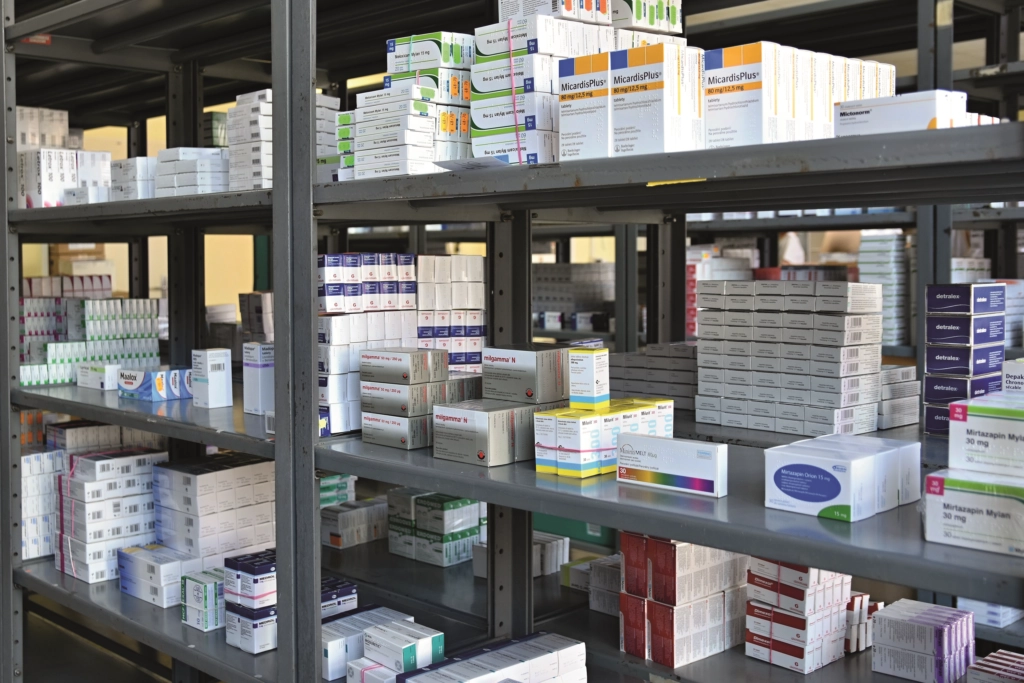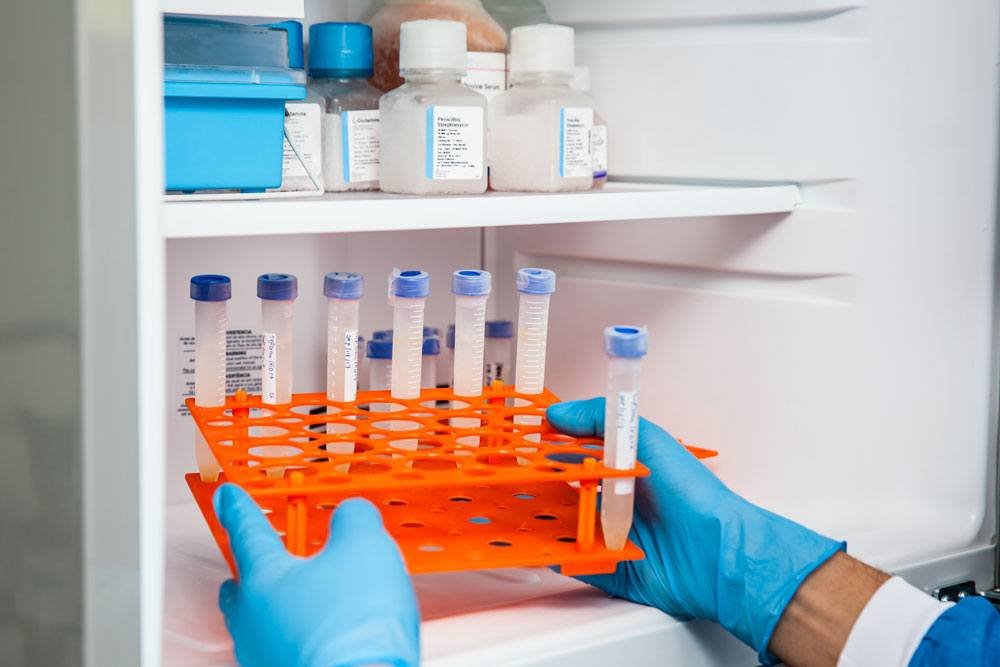The community of import/export regulations for food warehouses Riyadh can take time and effort. With stringent policies set by the Saudi Food and Drug Authority (SFDA), businesses must adhere to these regulations to ensure the safety and quality of food products entering and leaving the Kingdom of Saudi Arabia (KSA). This article acts as a guide and provides an overview of the key import/export regulations, offering valuable insights into the necessary procedures and requirements.
The Ultimate Guide: Import/Export Regulations for Food Warehouses Riyadh

The Saudi Food and Drug Authority (SFDA) may request accurate and up-to-date information on the general organization and management of food, veterinary, sanitary, and phytosanitary control systems in countries exporting to Saudi Arabia. This may include:
- Sanitary or Phytosanitary Regulations: Existing, new, or proposed sanitary or phytosanitary regulations.
- Control and Inspection Procedures: Procedures related to control and inspection, as well as relevant pesticide or food additive tolerance levels and regulations.
- Food Chain Information: Any information related to the food chain.
All countries exporting animal-origin products to Saudi Arabia must implement effective residue control plans for banned or controlled chemicals, antibiotics, hormones, and other contaminants in line with SFDA requirements. These plans should be specific to the type of food intended to be exported to Saudi Arabia. In the following part of the article, we will learn more about all of these plans and import/export regulations for food warehouses Riyadh.
SFDA Approval
The SFDA’s regulations apply to all food products imported into the KSA, with the primary aim to ensure food safety, protect public health, and facilitate international trade. The SFDA mandates that imported food products comply with the KSA’s food law, technical regulations, and health standards.
-
- Necessity Before Market Release: Before any food product can be released into the Saudi market, it must receive approval from the Saudi Food and Drug Authority (SFDA). This approval is critical to ensure that all imported food products meet the import/export regulations for food warehouses Riyadh established by the SFDA.
- Verification of Compliance with KSA Regulations: The approval process involves a thorough verification of compliance with Saudi Arabian regulations, policies, and procedures. The SFDA assesses whether the food products conform to the technical standards, health requirements, and other regulatory guidelines set forth by the Kingdom of Saudi Arabia.
- Necessity Before Market Release: Before any food product can be released into the Saudi market, it must receive approval from the Saudi Food and Drug Authority (SFDA). This approval is critical to ensure that all imported food products meet the import/export regulations for food warehouses Riyadh established by the SFDA.
- Licensing and Registration: Food warehouses must be licensed and registered with the SFDA. This includes meeting all necessary structural and operational standards to ensure food products’ safe storage and handling.
-
- Good Storage Practices (GSP): Warehouses are required to adhere to Good Storage Practices (GSP), which include maintaining appropriate temperature controls, ensuring proper hygiene and sanitation, and implementing effective pest control measures. These practices are essential to prevent contamination and ensure the quality and safety of stored food products.
- Good Storage Practices (GSP): Warehouses are required to adhere to Good Storage Practices (GSP), which include maintaining appropriate temperature controls, ensuring proper hygiene and sanitation, and implementing effective pest control measures. These practices are essential to prevent contamination and ensure the quality and safety of stored food products.
- Health and Safety Standards: Food warehouses must comply with health and safety standards, which include proper handling and storage of hazardous materials, training for staff on food safety practices, and implementing safety protocols to prevent accidents and contamination.
Food warehouses must comply with SFDA’s import/export regulations for food warehouses Riyadh, and all the logistic companies strive to achieve the SFDA regulations.
Residue Control
- Effective Plans for Foods of Animal and Plant Origin: Importing countries must have effective residue control plans in place for both foods of animal and plant origin. These plans are essential for monitoring and managing the levels of chemicals, antibiotics, hormones, and other contaminants to ensure they are within safe limits.
- Adherence to SFDA Requirements: The residue control plans must strictly adhere to the standards and requirements specified by the SFDA. This includes regular testing and documentation to confirm that the products meet the safety standards and do not pose any risk to consumers.
Halal and Health Certificates
- Mandatory Inclusion with Consignments: All consignments of food products must include Halal and health certificates. These certificates are essential to verify that the products meet the health and religious standards required by the SFDA.
- Accreditation and Compliance Confirmation: The certificates must be issued by accredited bodies recognized by the KSA authorities. This ensures that the products comply with the Halal requirements and health standards set by the SFDA, assuring their safety and suitability for consumption.
These certificates are essential to verify that the products meet the health and religious standards required by the SFDA, following import/export regulations for food warehouses Riyadh.
Sanitary and Phytosanitary Measures
- Adherence to SFDA Regulations: Importing countries must comply with the sanitary and phytosanitary measures outlined by the SFDA. These measures are designed to protect human, animal, and plant health by ensuring that imported food products are free from harmful contaminants and diseases.
- Ensuring Products are Free from Harmful Residues: Products must be tested and verified to be free from harmful residues and contaminants. This includes pesticides, heavy metals, and other hazardous substances that could pose a risk to health and safety.
Specific Requirements for Animal and Plant Products
Foods of Animal Origin:
- Meeting Residue Control and Traceability Requirements: Foods of animal origin must comply with strict residue control and traceability requirements. The exporting country must implement effective residue control plans to monitor and manage contaminants in these products. Additionally, traceability systems must be in place to track the products through all stages of the food chain.
- Halal Certification: Halal certification is mandatory for foods of animal origin. This certification ensures that the animals were slaughtered according to Islamic law, which is a critical requirement for food products in Saudi Arabia. The certification must be issued by an accredited Islamic center or society recognized by the SFDA import/export regulations for food warehouses Riyadh.
Foods of Plant Origin and Their Products
The Saudi Food and Drug Authority (SFDA) may request official guarantees from the central competent authority in the exporting country regarding the use or limitation of certain chemicals in the production of plant-based foods. These guarantees may also include information on the product’s composition, such as the absence of genetically modified organisms (GMOs), and details of any treatments applied after harvesting.
Processed Fruits, Vegetables, and Grains
When importing fresh fruits, vegetables, and grains, the competent authority in the exporting country must provide an official phytosanitary certificate. The format of this phytosanitary certificate must adhere to the model established by the relevant competent authority in the Kingdom of Saudi Arabia.
SFDA Procedures: Import/Export Regulations for Food Warehouses Riyadh
The Saudi Food and Drug Authority (SFDA) establishes detailed procedures and import/export regulations for food warehouses Riyadh for importing food products from a country or specific areas/regions within a country if such conditions are not provided by KSA legislation. Additionally, the concerned KSA competent authority, in coordination with the SFDA, sets detailed conditions for animal health when necessary. These procedures aim to:
- List Exporting Countries: Identify countries where specific products can be imported into KSA.
- Design Health Certificates: Create standard models for health certificates accompanying food consignments.
- Specific Import Conditions: Establish tailored import conditions (e.g., additional guarantees such as regionalization) based on the type of product, animal, or associated risks, considering the information provided by the exporting country. These conditions may apply to multiple products, countries, or regions within a country.
When designing or updating the above list, the following factors must be considered to align with the import/export regulations for food warehouses Riyadh:
- Food Safety and Health Legislation: The exporting country’s regulations on food safety, animal, and plant health.
- Competent Authority Structure: The organization, official controls, jurisdictions, and guarantees provided by the competent authority in the exporting country to enforce relevant legislation.
- Official Controls: The existence of adequate official controls in the exporting country.
- Information Exchange: The efficiency and rapidity of the information exchange system regarding the presence of food risks.
- Compliance Guarantees: Guarantees from exporting countries ensure that food establishments meet KSA food law requirements.
- Food Establishments List: Designing and updating a list of food establishments promptly.
- Periodic Controls: These are regular inspections and assessments by authorities in exporting countries to ensure food products meet safety and quality standards. These controls help mitigate risks and enhance the reliability of the food supply chain.
In Conclusion
Understanding and complying with the import/export regulations for food warehouses Riyadh is crucial for ensuring food products’ smooth and efficient movement into the Kingdom of Saudi Arabia. The Saudi Food and Drug Authority (SFDA) has established detailed procedures and requirements that exporting countries must adhere to, covering everything from sanitary and phytosanitary measures to traceability systems and halal certification. By meeting these stringent standards, exporters can gain access to the lucrative Saudi market while ensuring the safety and quality of their food products.
For businesses looking to navigate these complex regulations, partnering with a knowledgeable and experienced company can make all the difference. The “3rd Partner” offers expert guidance and comprehensive support to help you successfully import food products into Riyadh. Contact us today to streamline your import process and ensure full compliance with SFDA regulations.










